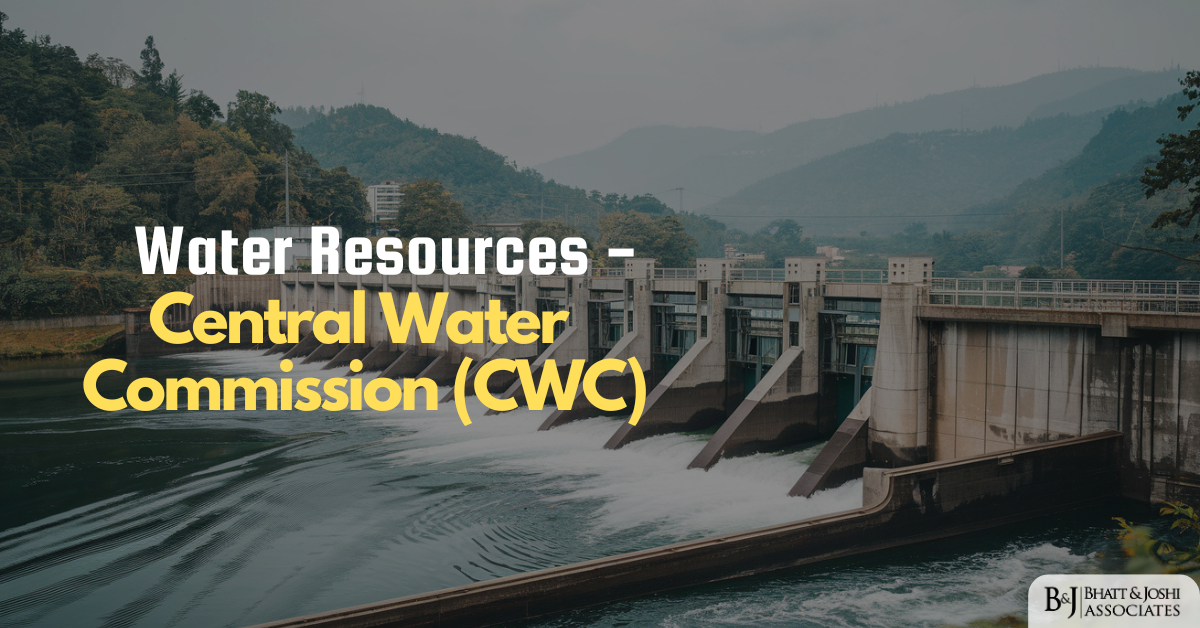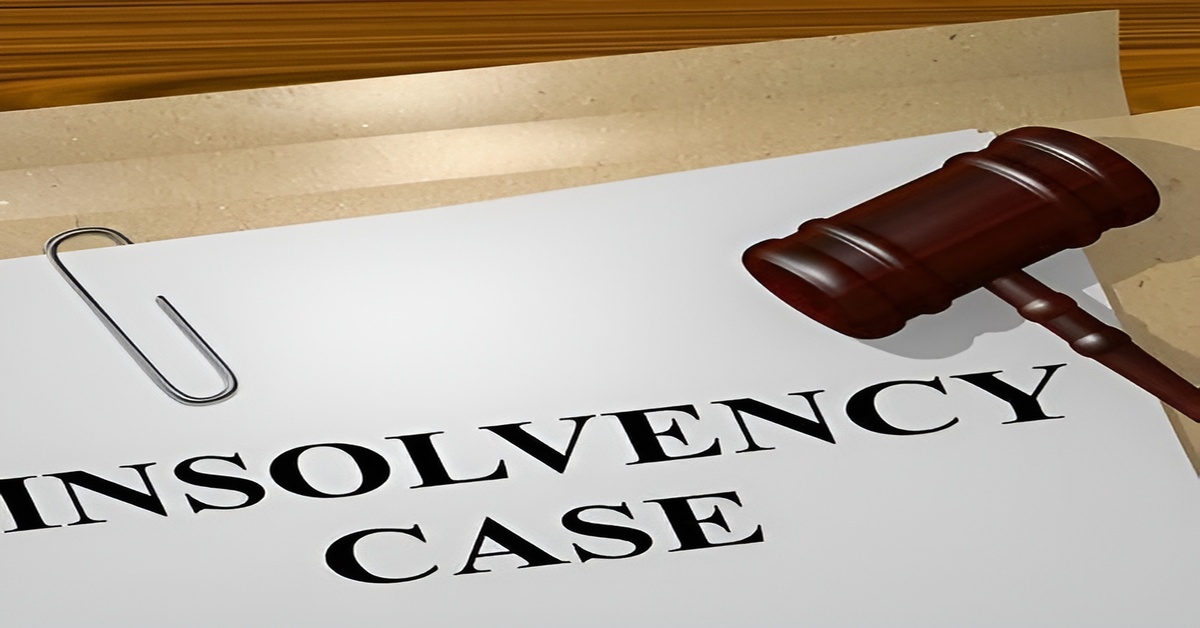Introduction
Water is one of the most vital resources for the survival of life on Earth, and its management is critical for agriculture, industry, domestic use, and environmental sustainability. In India, the Central Water Commission (CWC) plays a significant role in the management and regulation of water resources. This article delves into the role of the CWC, the regulatory frameworks governing water resources, and relevant case laws that have shaped water management policies in India.
Historical Context and Formation of Central Water Commission (CWC)
The Central Water Commission (CWC) is a premier technical organization under the Ministry of Jal Shakti, established in 1945. Originally formed as the Central Waterways, Irrigation, and Navigation Commission, its scope has expanded over the years. The primary objective of the CWC is to promote integrated and sustainable development and management of water resources in India.
The Commission’s role became increasingly important in the post-independence period when India embarked on large-scale irrigation and hydropower projects to support its rapidly growing population and economy. CWC’s expertise in water management has been crucial in planning and implementing several major river valley projects, including the Bhakra-Nangal, Hirakud, and Damodar Valley projects.
Functions and Responsibilities of Central Water Commission (CWC)
The CWC performs a wide range of functions that cover technical assistance, hydrological monitoring, dam safety, and policy recommendations. Its responsibilities extend beyond simply managing water resources; it also plays a crucial role in flood control and the development of hydropower resources.
- Technical Assistance and Policy Development: The CWC provides technical expertise to state governments and agencies in matters related to water resource management, flood control, and dam safety. It also assists in the formulation of national water policies, such as the National Water Policy 2012, which sets out the framework for the equitable and sustainable use of water resources in the country.
- Hydrological Monitoring and Forecasting: The CWC operates an extensive network of hydrological observation stations across India. These stations monitor various parameters, such as river discharge, water levels, and rainfall, which are essential for flood forecasting, irrigation planning, and water resource management.
- Flood Control and Management: One of the key functions of the CWC is flood control. It plays a pivotal role in formulating flood management plans and provides technical expertise for constructing flood control infrastructure like embankments, dams, and reservoirs. The Commission also issues flood forecasts to alert state authorities and communities during the monsoon season.
- Dam Safety and Regulation: CWC is responsible for inspecting and evaluating the safety of dams and ensuring compliance with dam safety norms. It also provides technical assistance to state governments in designing new dams and maintaining existing ones.
Regulatory Framework Governing Water Resources
Water resource management in India is governed by a complex legal framework involving both central and state laws. The CWC operates within this framework to ensure sustainable water use and management.
Inter-State Water Disputes Act, 1956
The Inter-State Water Disputes Act governs the resolution of water disputes between states. Given that most rivers in India flow across state boundaries, conflicts over water sharing are common. The CWC provides technical assistance in resolving these disputes and has played a crucial role in the adjudication of cases like the Cauvery Water Dispute between Tamil Nadu and Karnataka.
River Boards Act, 1956
The River Boards Act empowers the central government to create river boards for regulating and developing inter-state rivers and river valleys. While the Act has rarely been implemented, the CWC works in conjunction with state water departments to manage river basins effectively.
National Water Policy, 2012
The National Water Policy is a broad framework for water resource management in India. It emphasizes the need for integrated water resource management (IWRM) and advocates the equitable distribution of water for drinking, agriculture, and industry. The CWC plays a key role in implementing the policy, particularly in areas related to water conservation, irrigation efficiency, and flood management.
Case Laws Involving Water Resource Management
Water disputes in India have often escalated into legal battles, particularly when multiple states lay claim to the same river. Several landmark judgments have shaped how water resources are managed and shared.
Cauvery Water Dispute (Karnataka v. Tamil Nadu)
One of the most protracted and high-profile inter-state water disputes in India, the Cauvery Water Dispute between Karnataka and Tamil Nadu has been a defining case in water resource management. The Supreme Court in 2018 delivered its final verdict, directing Karnataka to release 177.25 TMC of water to Tamil Nadu annually, with oversight by the Cauvery Water Management Authority. The CWC provided vital technical data and expertise during the litigation, assisting the Tribunal and Supreme Court in arriving at a scientific assessment of the water needs of both states.
Narmada Bachao Andolan v. Union of India (2000)
This landmark case dealt with the environmental and social implications of constructing the Sardar Sarovar Dam on the Narmada River. The Supreme Court allowed the construction of the dam to proceed, with a height of 90 meters, while recognizing the need to resettle affected populations. The CWC played a crucial role in assessing the technical viability of the project and providing hydrological data for the case.
Godavari Water Dispute
The Godavari Water Dispute involved several states, including Maharashtra, Andhra Pradesh, and Karnataka, over the sharing of the Godavari River’s waters. The Godavari Water Dispute Tribunal was established under the Inter-State Water Disputes Act to resolve the conflict. The CWC provided technical inputs and facilitated negotiations between the states, ensuring the equitable distribution of water.
Challenges in Water Resource Management
The management of water resources in India faces several challenges, particularly in light of climate change, increasing population, and industrialization. The CWC must navigate these challenges to ensure the sustainable management of India’s water resources.
- Inter-State Water Disputes: Water sharing between states has been a contentious issue for decades, and the lack of a permanent dispute resolution mechanism exacerbates the problem. While the CWC provides technical expertise in these disputes, it does not have the authority to resolve them, leaving the matter to tribunals and courts.
- Climate Change: Climate change poses a significant challenge to water resource management in India, with erratic rainfall patterns, increased frequency of floods, and prolonged droughts. The CWC is working to incorporate climate resilience into its flood management and water conservation strategies.
- Groundwater Depletion: India is one of the largest users of groundwater in the world, and over-extraction has led to alarming depletion levels in many regions. While the CWC primarily focuses on surface water management, it is increasingly working with state governments to promote sustainable groundwater use.
Recent Developments in CWC’s Role
The CWC has been actively involved in several recent initiatives to modernize water resource management in India. With the introduction of the Jal Shakti Abhiyan and Atal Bhujal Yojana, the focus has shifted towards integrating surface and groundwater management, improving irrigation efficiency, and promoting water conservation techniques like rainwater harvesting.
Additionally, the CWC is at the forefront of implementing the National Hydrology Project (NHP), which aims to establish a comprehensive hydrological information system in India. This project will provide real-time data on river flows, groundwater levels, and rainfall patterns, enabling better water resource planning and management.
Role of Central Water Commission (CWC) in Dam Safety
Dam safety is one of the critical areas of CWC’s focus. India has over 5,200 large dams, many of which are aging and require constant monitoring to prevent structural failures. The Dam Safety Bill, 2021, which seeks to establish an institutional mechanism for dam safety across India, has been supported by the CWC’s technical expertise. The Commission provides dam owners with guidelines on maintenance, operation, and safety protocols, ensuring that the risk of dam failure is minimized.
International Collaboration and Best Practices
The CWC has also collaborated with international organizations, including the World Bank, to adopt best practices in water management. For instance, through the National Hydrology Project, the CWC has adopted advanced hydrological modeling techniques that are in line with global standards. These collaborations help in improving India’s capacity to manage its water resources more efficiently, especially in the context of climate change and population growth.
Conclusion
The Central Water Commission plays a pivotal role in the management and regulation of water resources in India. Through its technical expertise, policy recommendations, and regulatory oversight, it ensures that India’s water resources are used efficiently and sustainably. However, the CWC faces significant challenges, including inter-state water disputes, climate change, and groundwater depletion. Addressing these challenges will require continuous modernization of water management practices, stronger regulatory frameworks, and better coordination with state governments and other stakeholders.













